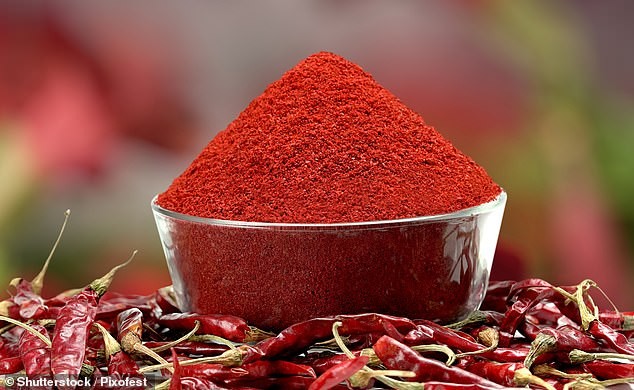The $5 Pepper That Could Extend Your Life: A Biohacker Bets on Chili Over Supplements
Biohacker Bryan Johnson, 48, claims a simple $5 produce item could turn back the hands of time and shield against an early death. Johnson, who says he is biologically more than a decade younger than his age, argues that spicy chili peppers, not expensive supplements, might hold the key to longevity. He points to a 2020 study of more than 570,000 people across the US, Italy, China and Iran showing regular chili pepper eaters had a 26% lower risk of cardiovascular mortality, a 23% lower risk of cancer mortality, and a 25% lower risk of death from any cause. The American Heart Association-led research did not explain why peppers might help; capsaicin is thought to drive anti-inflammatory, antioxidant, anticancer, and blood-glucose regulation effects. Johnson posted on X: “Hot ones I’m ready for you.” He did not reveal whether he eats chili peppers regularly, but he continues a high-cost anti-aging regimen.

In This Article:
What the Research Really Shows About Chili Pepper and Longevity
A 2020 meta-analysis of four large observational studies, involving more than 570,000 participants across multiple countries, found that regular chili pepper consumption was associated with lower mortality. Specifically, pepper eaters had about a 26% lower cardiovascular mortality, a 23% lower cancer mortality, and roughly a 25% lower risk of death from any cause compared with non-eaters. However, the studies were observational and relied on self-reported diets; pepper type, amount, and frequency varied, and no standardized dosage was established. Researchers caution that these findings show association, not causation, and more research is needed to understand the mechanisms. Senior author Dr. Bo Xu, a cardiologist at the Cleveland Clinic, said dietary factors may play a role, but the exact reasons and mechanisms remain unknown; randomized controlled trials are required to confirm any benefits.

Capsaicin's Possible Mechanisms and Brain Health Clues
Capsaicin—the spicy compound in chili peppers—has been linked to anti-inflammatory, antioxidant, anticancer, and blood-glucose–regulating effects. A separate 2020 study in mice, from Canadian researchers, found that treats made with capsaicin protected against amyloid plaque formation and reduced brain inflammation, both of which are implicated in Alzheimer’s disease. While such animal data are encouraging, translating them into human outcomes requires caution.

Johnson’s Broader Regimen: EVOO as a Health Pillar
Johnson is also a vocal advocate of extra virgin olive oil, reportedly consuming a tablespoon with every meal. In his YouTube videos, he outlines criteria for EVOO to be considered healthful: cold-pressed; high polyphenol content; sufficient oleic acid; third-party testing; harvest date; and UV protection. Healthline notes EVOO’s nutrition, antioxidants, and anti-inflammatory properties, with potential benefits for weight management, blood pressure, blood sugar, cholesterol, heart and brain health, and mood. Johnson has even claimed EVOO protects against the damage that eating can cause, arguing that the scientific evidence is compelling and that EVOO belongs in an elite category.

Caution, Context, and What It Means for You
The pepper findings are intriguing but not proven. Observational studies rely on self-reported data, and pepper type and amount vary widely, making it hard to pin down exact effects. Experts emphasize that more research, especially randomized controlled trials, is needed to confirm any true longevity benefit. For now, incorporating chili peppers and extra virgin olive oil into a balanced, varied diet may offer health perks, but they are not a guaranteed path to immortality.


